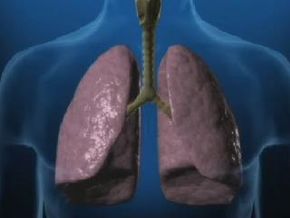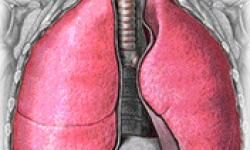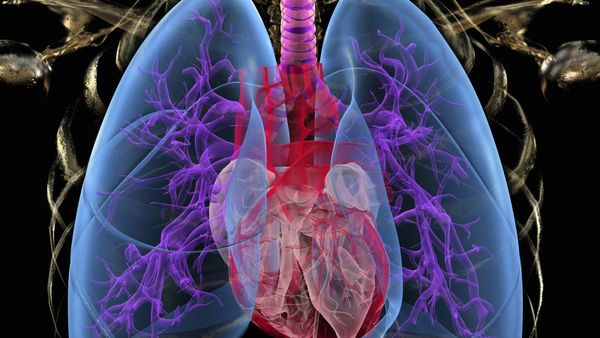Emphysema is part of chronic obstructive pulmonary disease (COPD). It occurs when the tiny air sacs in your lungs, through which oxygen transfers into your blood, become damaged. This is most commonly as a result of smoking. As part of the disease, the elastic fibers that hold open the tiny air sacs are destroyed. This is why people with emphysema find it difficult to breathe out, since the air sacs collapse when they try to let the air out. If you have emphysema, you are likely to feel short of breath because your damaged air sacs, or alveoli, are no longer able to transfer oxygen to your blood, so your body will not be getting the amount of oxygen it needs. Furthermore, the collapsed alveoli that are filled with trapped air reduce the amount of oxygen-filled air that can enter your lungs when you breathe in. You may find that you have a wheeze, feel tightness in your chest and get very short of breath when you are doing physical activities. You will probably feel tired all the time, because your body is working very hard to maintain adequate oxygen levels. You may also lose weight, as the work of breathing will be burning off calories.
Your damaged alveoli will become inflamed and, as part of the inflammatory response, there will be a build-up of mucus inside the little air sacs. This is why you will have a chronic cough and will constantly be bringing up mucus from your lungs. If you have emphysema, you will be more prone to getting chest infections, such as pneumonia, the flu and the common cold. Having vaccinations against these infections can help prevent them. Emphysema also places you at risk of getting pulmonary hypertension, which is high blood pressure in the arteries of the lungs, and cor pulmonale, which is strain on the right side of the heart that can cause heart failure.
Advertisement


